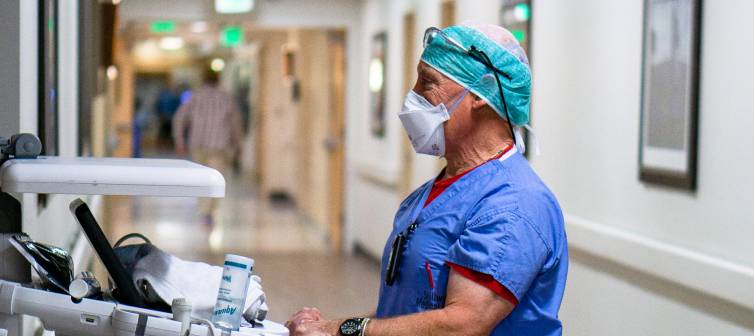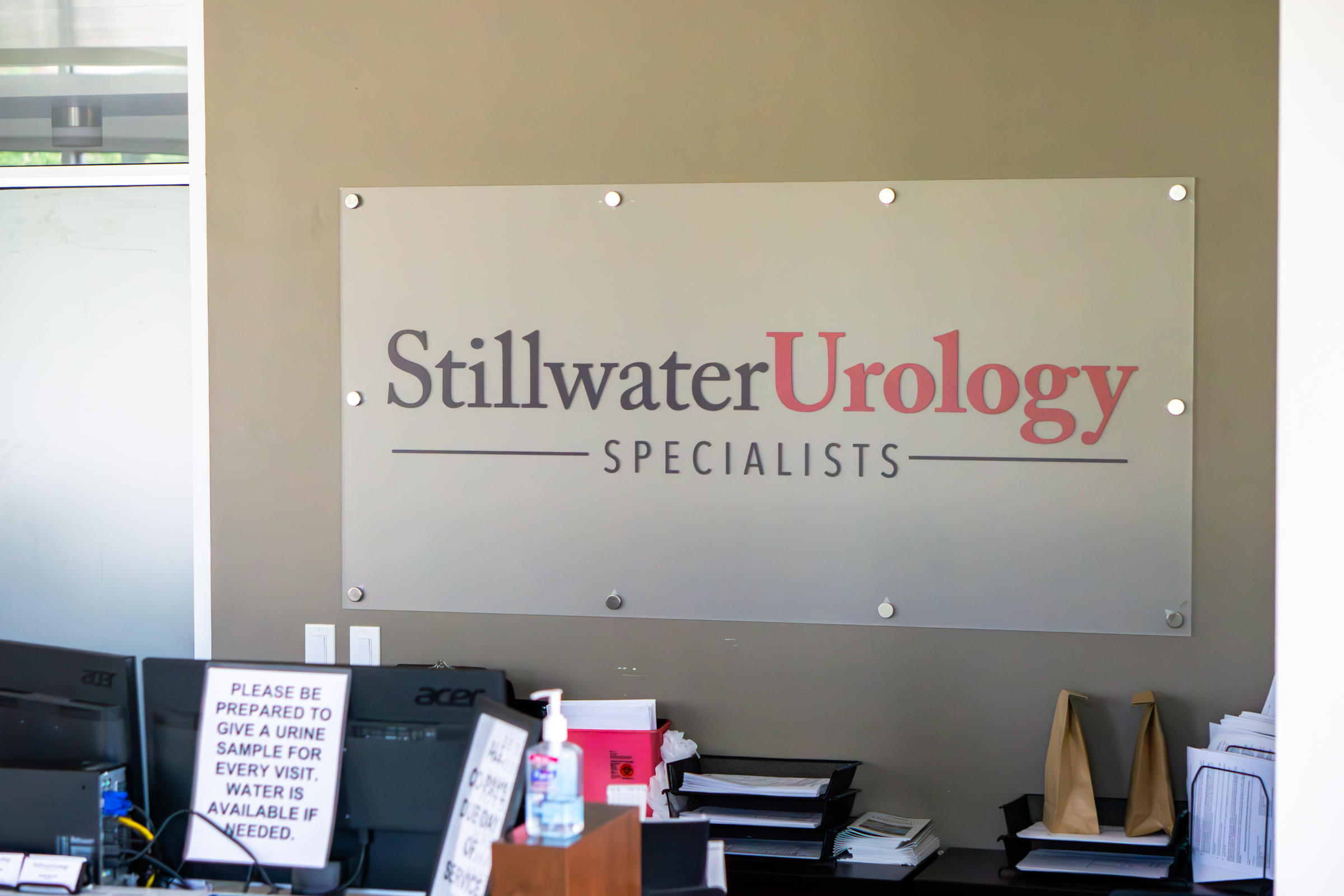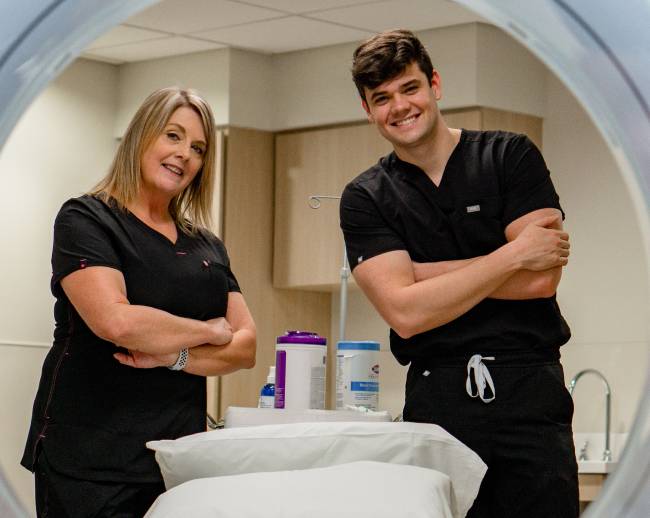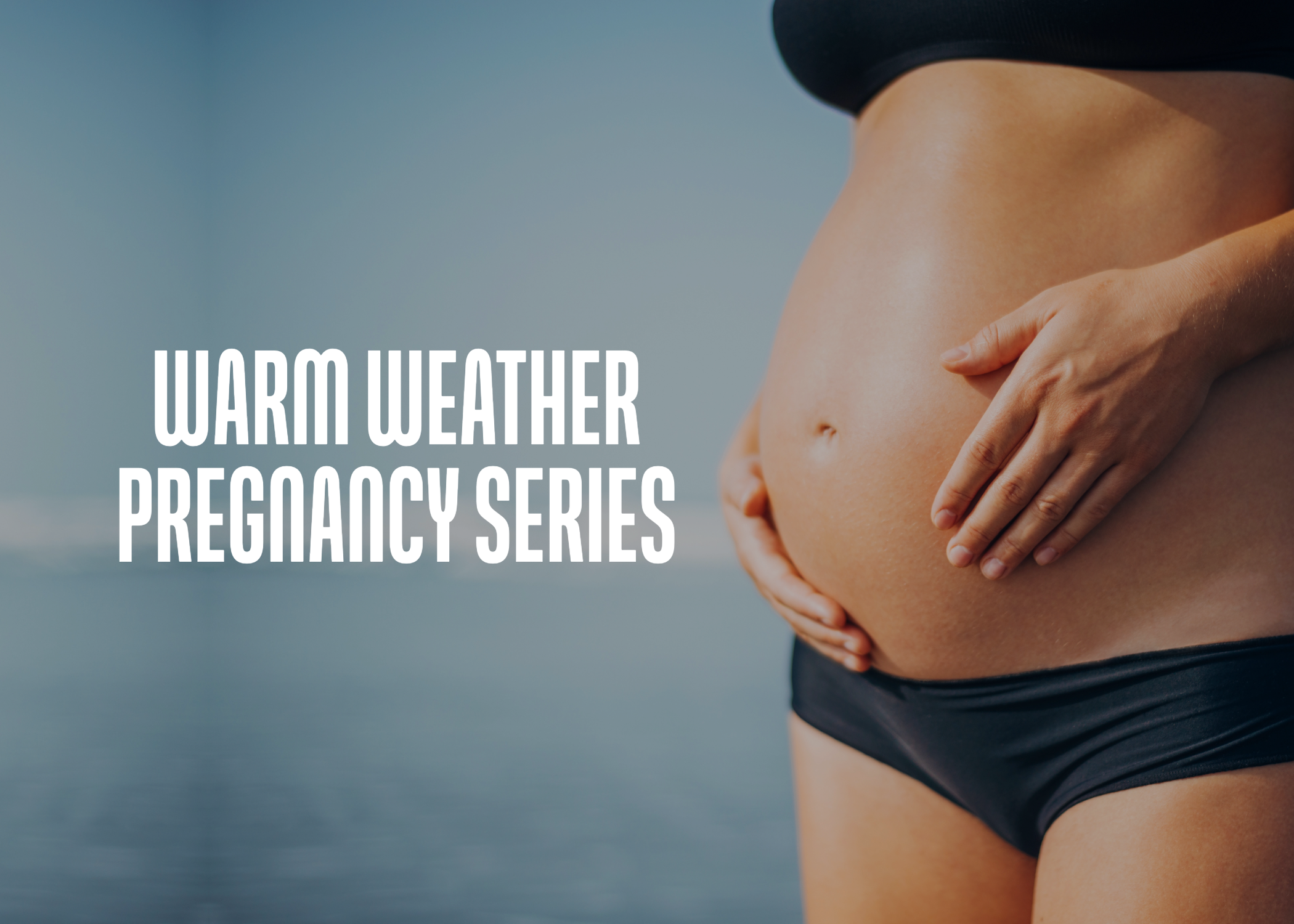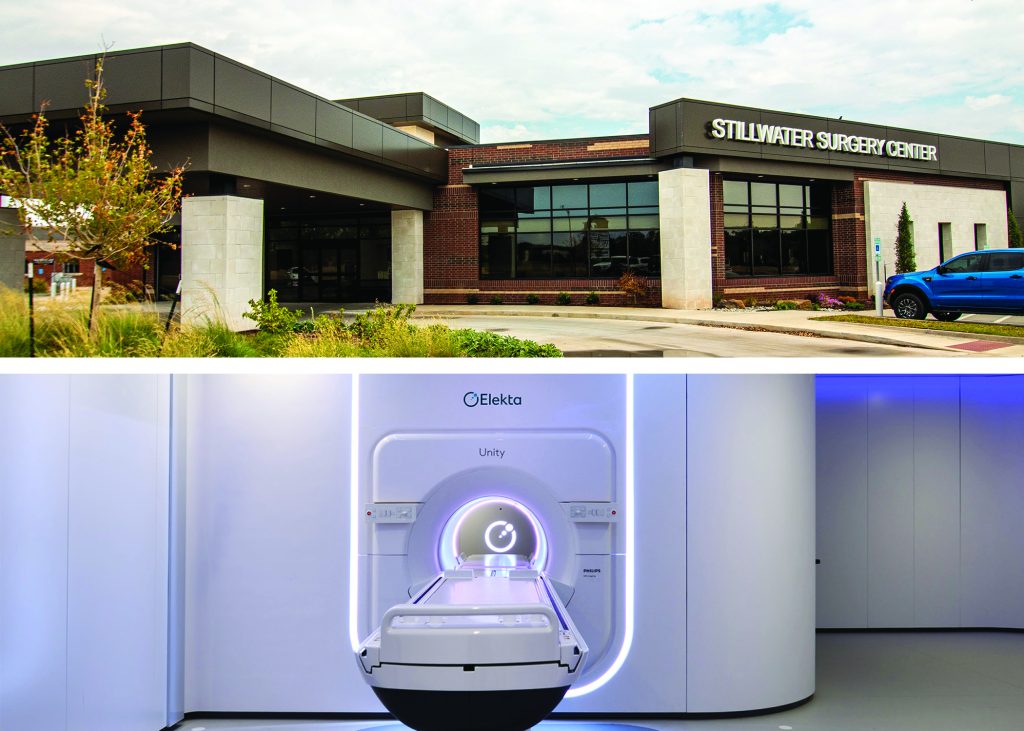Expecting during the hottest months of the year? Summer and Early Fall pregnancies are full of benefits (hello swimming pools, fresh watermelon, and easy, breezy sundresses) but they also come with the occasional downsides as well (sweating, overheating, and sun exposure limitations). While a woman’s general level of discomfort, swelling, and variety of growing pains are normal and expected any time of year during pregnancy, these symptoms can be exacerbated during the sweltering months of summer and early fall.
If you’re feeling the heat during this tricky season of pregnancy, don’t sweat it. Dr. Kyle Wilson, our newest OB/GYN from Stillwater Women’s Clinic at Stillwater Medical, has a few tricks up his sleeve to help ease those hot-weather woes.
Plus, he’s sharing some important signs to watch for as the temperature rises.
Warm Weather Risk #1: Dehydration
Staying hydrated is especially important during pregnancy, but getting enough fluids can be tough when the heat is at an all-time high. According to Dr. Kyle Wilson, mothers-to-be should aim to drink between 8 to 10, 8-ounce glasses of water daily. However, during the warmer months, an extra 8 ounces should be added to this total for every hour spent in the heat. This helps make up for lost fluids.
Cool Fix: Creative Hydration
Keeping an insulated water bottle by your side is key for maximizing your hydration goals but drinking that much water can get tedious after a while. Luckily, there are some creative ways to sneak in adequate hydrated. For example:
- Eating water-rich foods like watermelon and cucumbers
- Mixing and matching fruit juices to maximize nutrition. For example, chilled seltzer with a splash of lime and mango juice is delicious – and loaded with Vitamin C and iron.
- Avoiding too many caffeinated drinks and sugary sodas, both of which cause dehydration. Instead, opt for electrolyte drinks that contain sodium, potassium, and magnesium – these important minerals replace lost electrolytes.
Warm Weather Risk #2: Heat-Related Illnesses
According to the Centers for Disease Control and Prevention (CDC), pregnancy can increase your risk of heat exhaustion, heat stroke, and other heat-related illnesses. Why? This is because of increased blood volume and metabolic rate. Pair this with the hot summer months and your body needs to work even harder to keep you and baby cool. Additionally, as we know now, dehydration is a common factor in pregnancy that makes it harder for your body to cool itself down effectively with sweat. Severe heat can also cause increased internal temperature, which can increase the risk of prenatal complications and birth defects.
Cool Fix: Take Precautions & Know the Signs
A great benefit of being pregnant during the warmest months of the year is being able to go for a swim. Not only can this help cool you off, but the buoyancy of the water can ease the stress on your organs and splashing around provides a great low-impact workout. When a pool isn’t easily accessible, Dr. Kyle Wilson recommends the following:
- Avoid outdoor activities during peak heat times (early afternoon)
- Use fans when outside and take air conditioning breaks
- Stay hydrated
- Wear loose, light-colored clothing
- Choose moisture-wicking fabrics which allows sweat to evaporate quicker
- Avoid anything that can change your core body temperature, like extremely cold showers, hot tubs, and saunas. Moderately cool showers can help bring your body temperature within normal range if you feel you are overheating.
Along with following the above precautions, it’s also important to know the warning signs for heat-related illness. Dr. Kyle Wilson cites these as dizziness, headache, and nausea – beyond the nausea you’re used to. The CDC also says to watch out for the following symptoms of heat stroke and heat exhaustion. If you experience any of these symptoms, seek medical attention immediately:
Heat stroke symptoms: Confusion; a fast but strong pulse; hot and red skin; a high body temperature (over 100.3 degrees Fahrenheit for pregnant women); fainting
Heat exhaustion symptoms: Excessive sweating; cold or clammy skin; a fast but weak pulse; muscle cramps; weakness; fainting
Warm Weather Risk #3: Swelling
Thanks to all the extra fluids in your body during pregnancy, swelling is already a common year-round symptom. However, this can be exacerbated in summer. As we just explored, excess heat causes the blood vessels to expand, which leads to fluid accumulation in tissues and in turn, adds extra pressure on the veins.
Cool Fix: Kick Up Your Feet & Watch Your Salt Intake
To minimize swelling that’s already occurring, Dr. Kyle Wilson recommends elevating your legs whenever possible (even at work) and incorporating a few simple foot and ankle exercises. Wearing a supportive pair of shoes and avoiding long periods of sitting or standing also helps.
Salt is responsible for much of the water retention in our body. To prevent or mitigate additional swelling, try minimizing your salt intake. If swelling persists, Dr. Kyle Wilson suggests munching on watercress, celery, citrus fruits or small bits of parsley, which may act as natural diuretics. Again, it’s also important to drink plenty of water to flush out everything in your body.
Warm Weather Risk #4: Sun Exposure
Getting sunlight is important during pregnancy – taking walks, spending time outside, and soaking in a healthy dose of natural vitamin D has many health benefits. But it’s also important to make sure you don’t overdo it during the warmer months when the sun’s UV rays are stronger. Why? In addition to what we’ve discussed above – dehydration, overheating, and swelling – women can be more sensitive to sunburns and the development of brown splotches when they are pregnant thanks to a variety of changes happening, most notably hormone fluctuations. This is why taking proper sun protection measures is key across the board.
Cool Fix : Choosing the Right Sunscreen & Accessories
First and foremost, choosing the right sunscreen is essential at preventing sunburns and protecting the skin. Dr. Kyle Wilson recommends selecting a mineral sunscreen with SPF 30 or higher. If you plan to be outside for more than an hour, opt for SPF 50 and reapply every two hours.
Covering up with protective clothing, staying in the shade, and avoiding the sun’s rays during peak hours (typically from 11:00am-3:00pm) are also great ways to mitigate excess exposure. And last but not least, don’t neglect skin checks during pregnancy.
The words, “mother knows best” always ring true in any scenario. While there are many things to remember throughout pregnancy, trusting your body and listening to what it needs is the most important. Drink your water, stay cool, rest when you need to, and enjoy the sunlight – before you know it, your bundle of joy will be here.
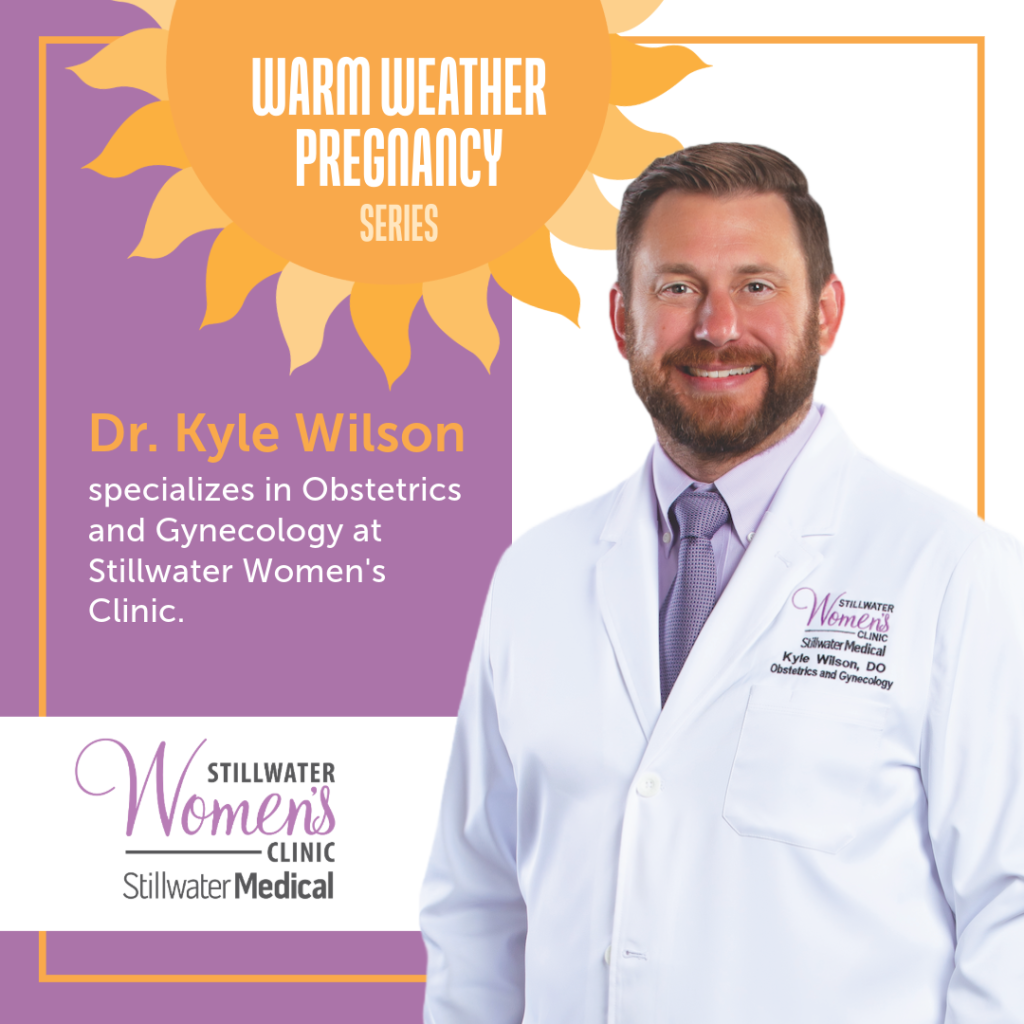
Dr. Kyle Wilson is an Obstetrics and Gynecology provider at Stillwater Medical Center. He is currently welcoming new patients.
To schedule an appointment,
call (405) 624-8222.
